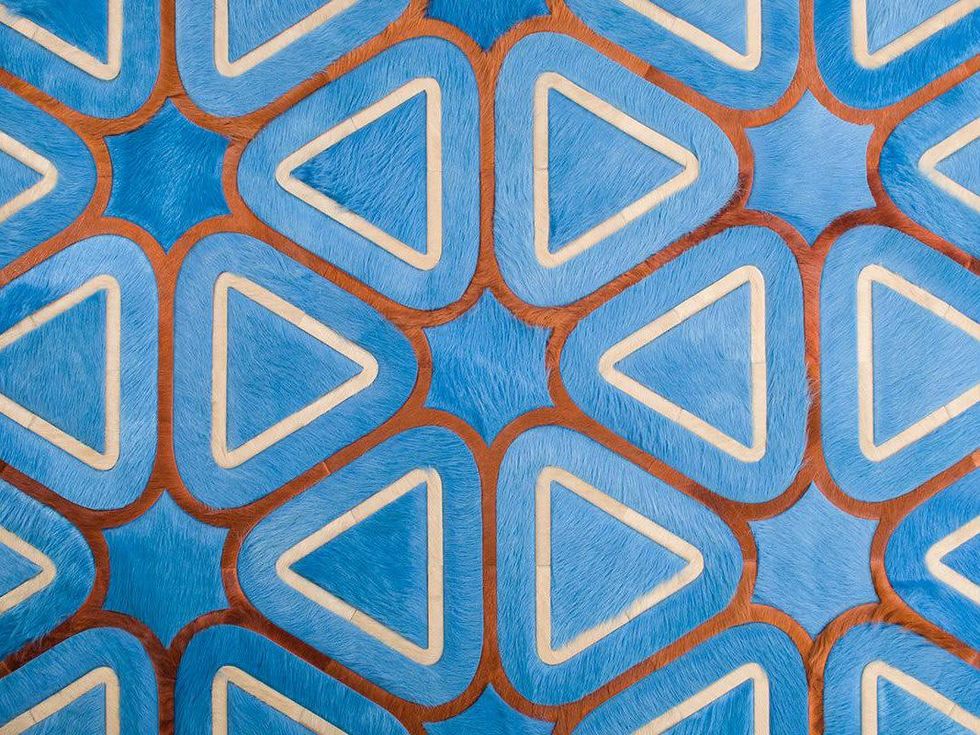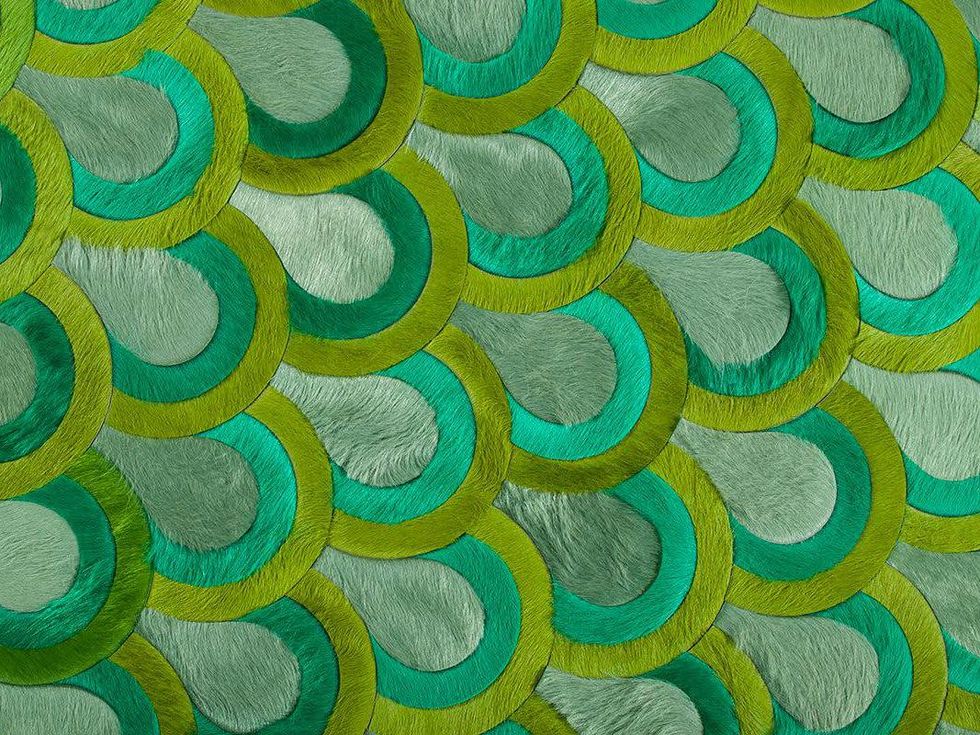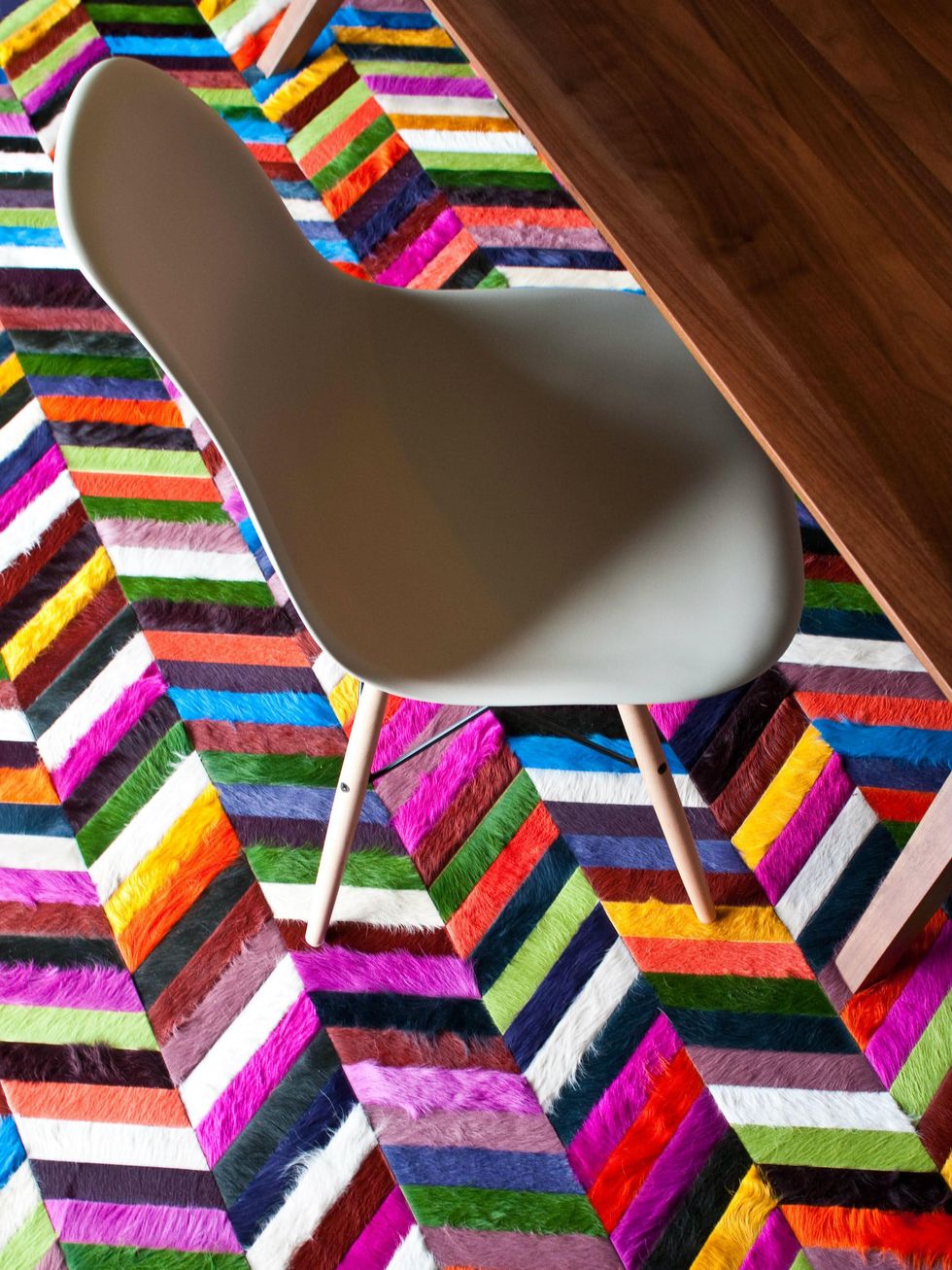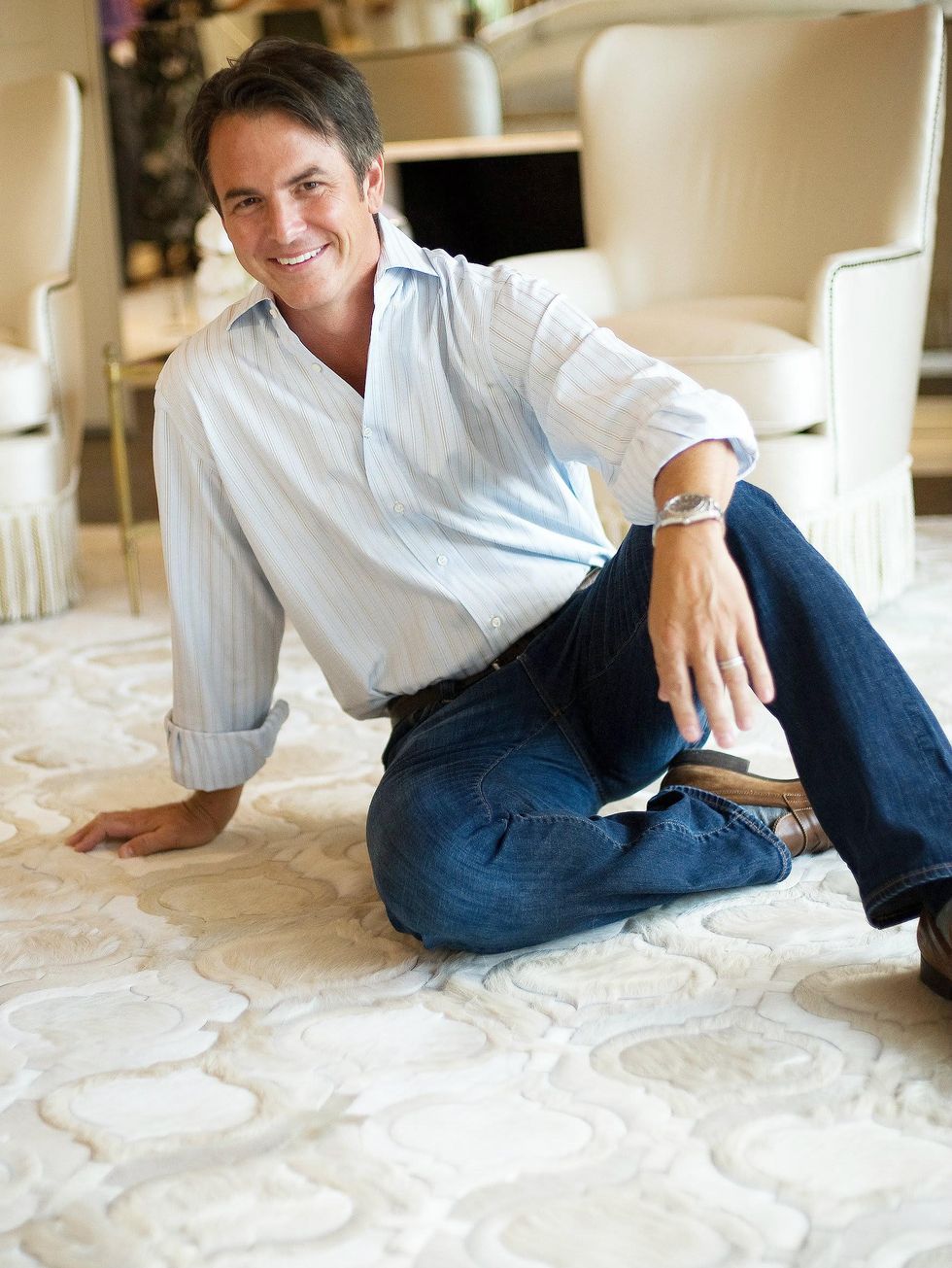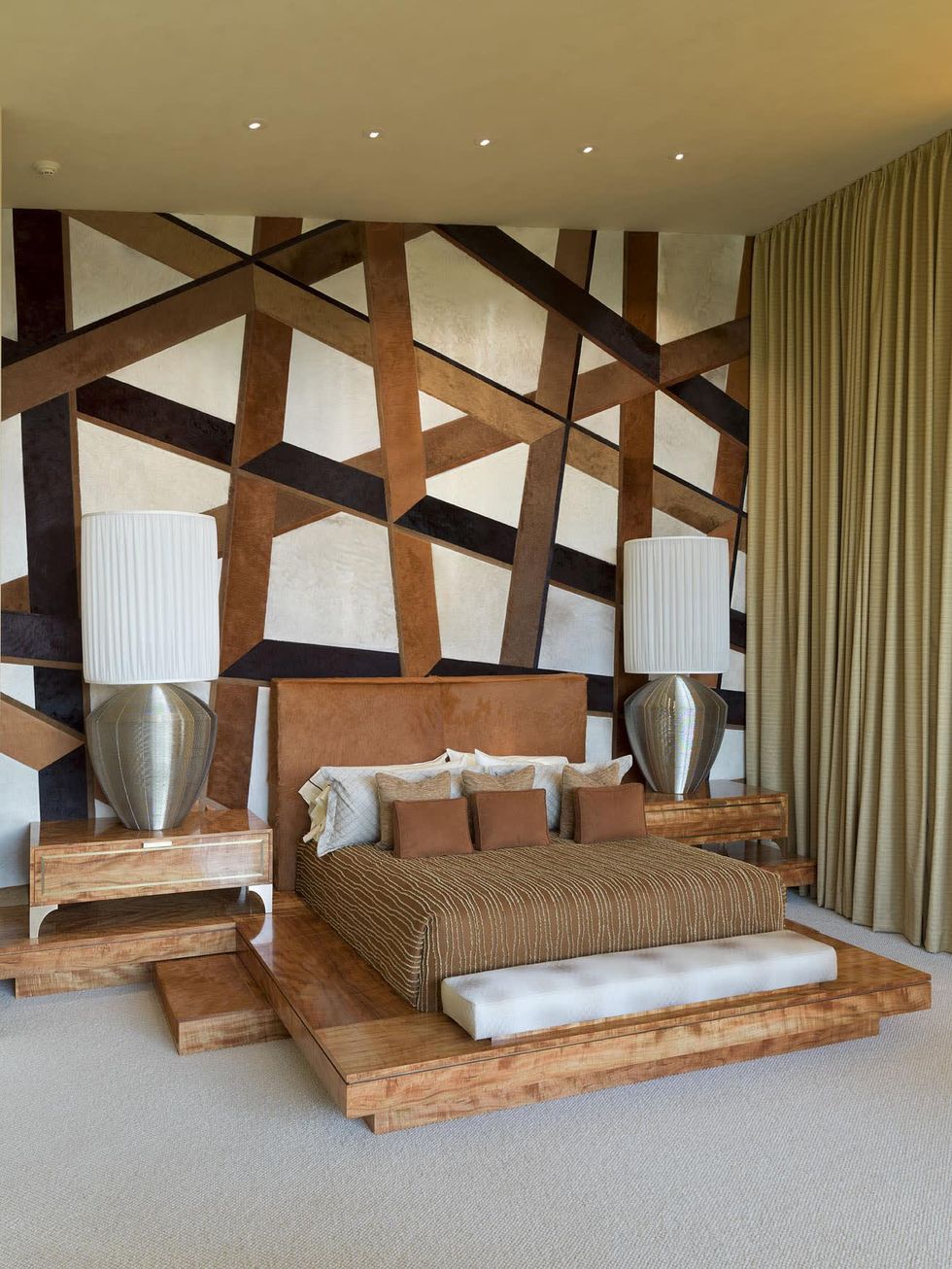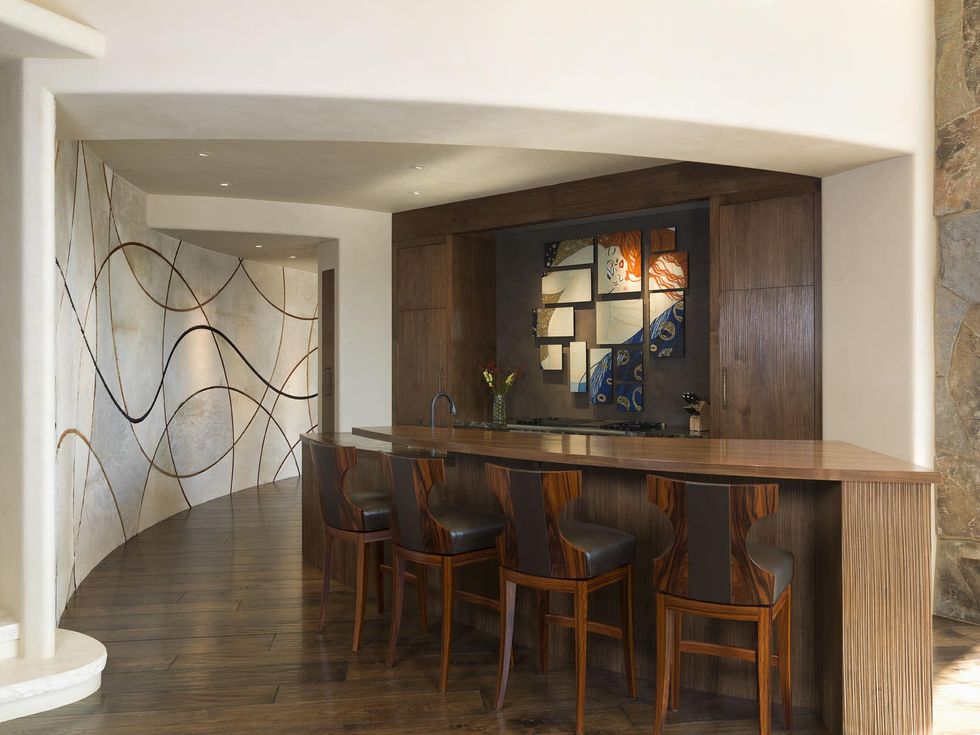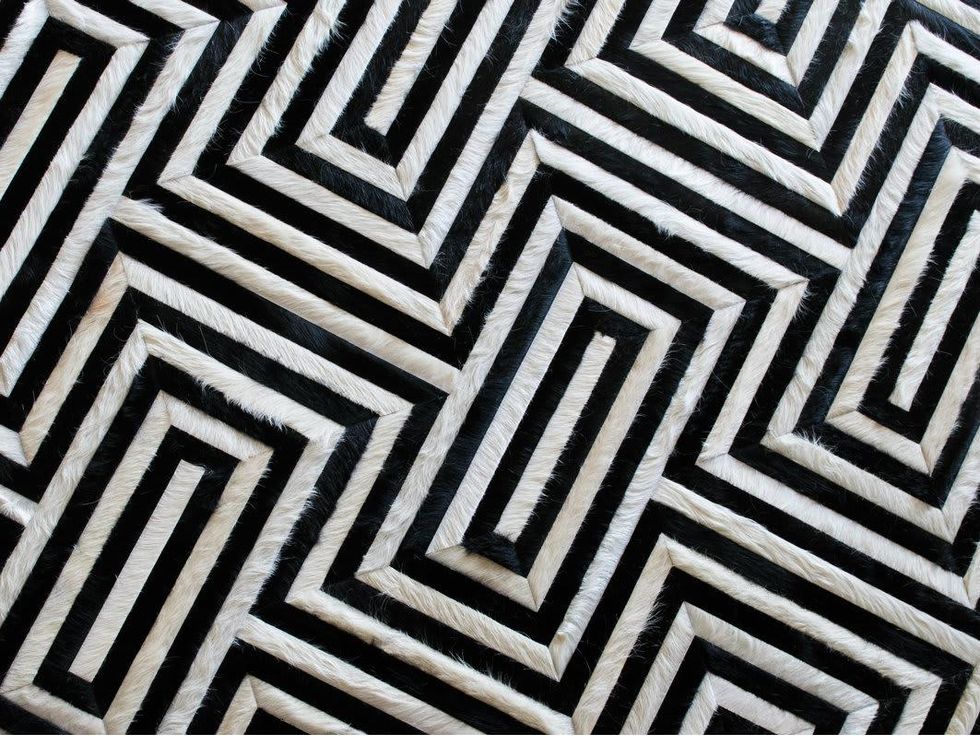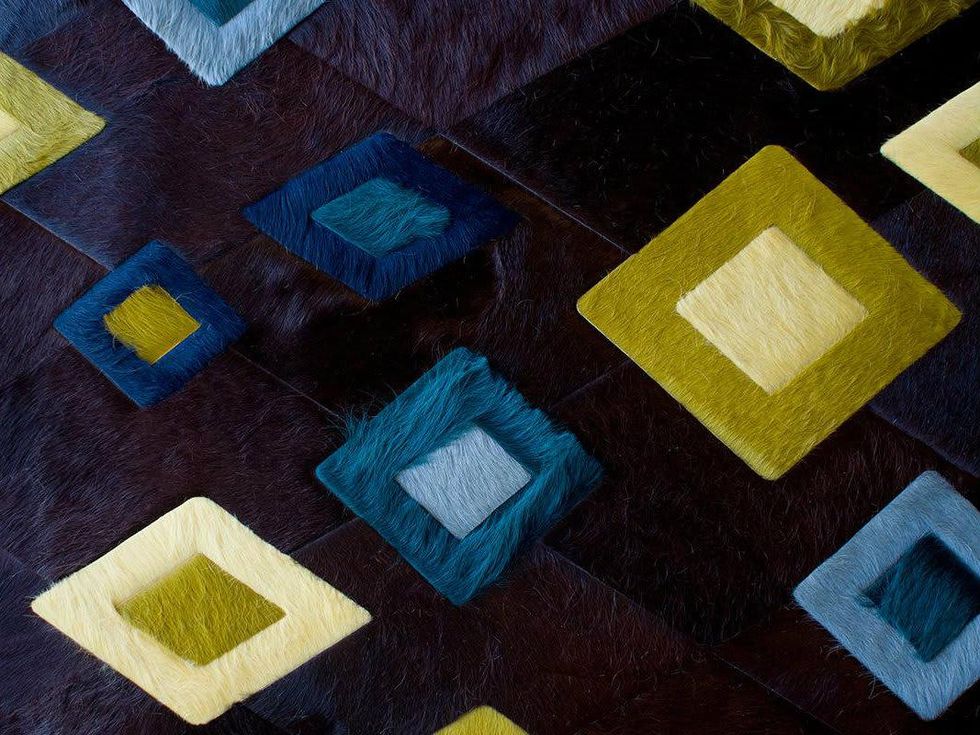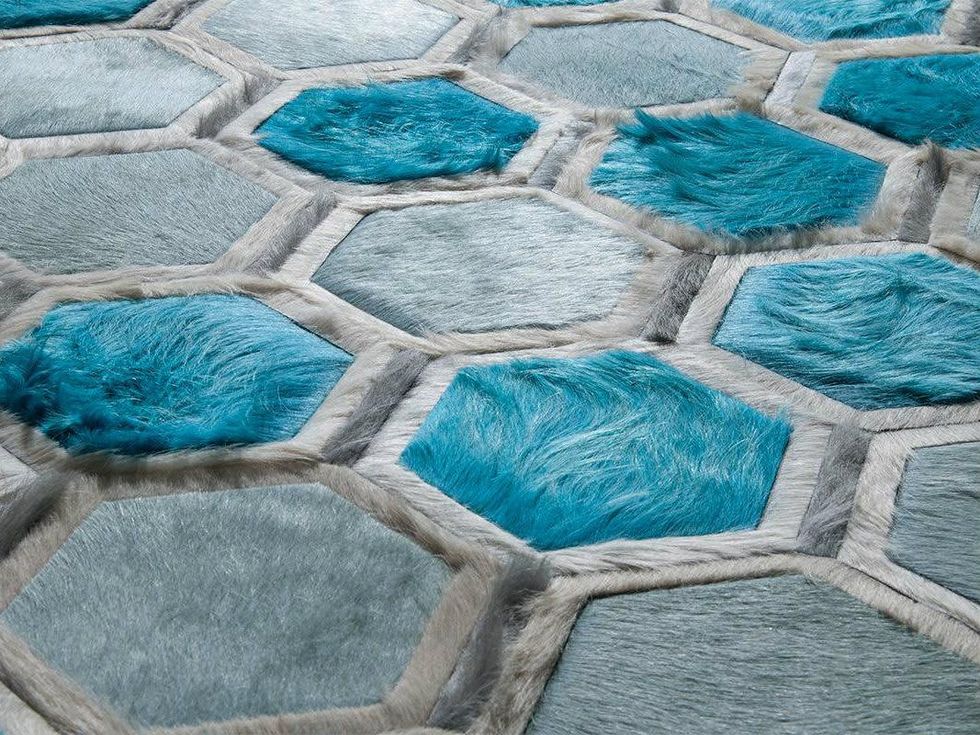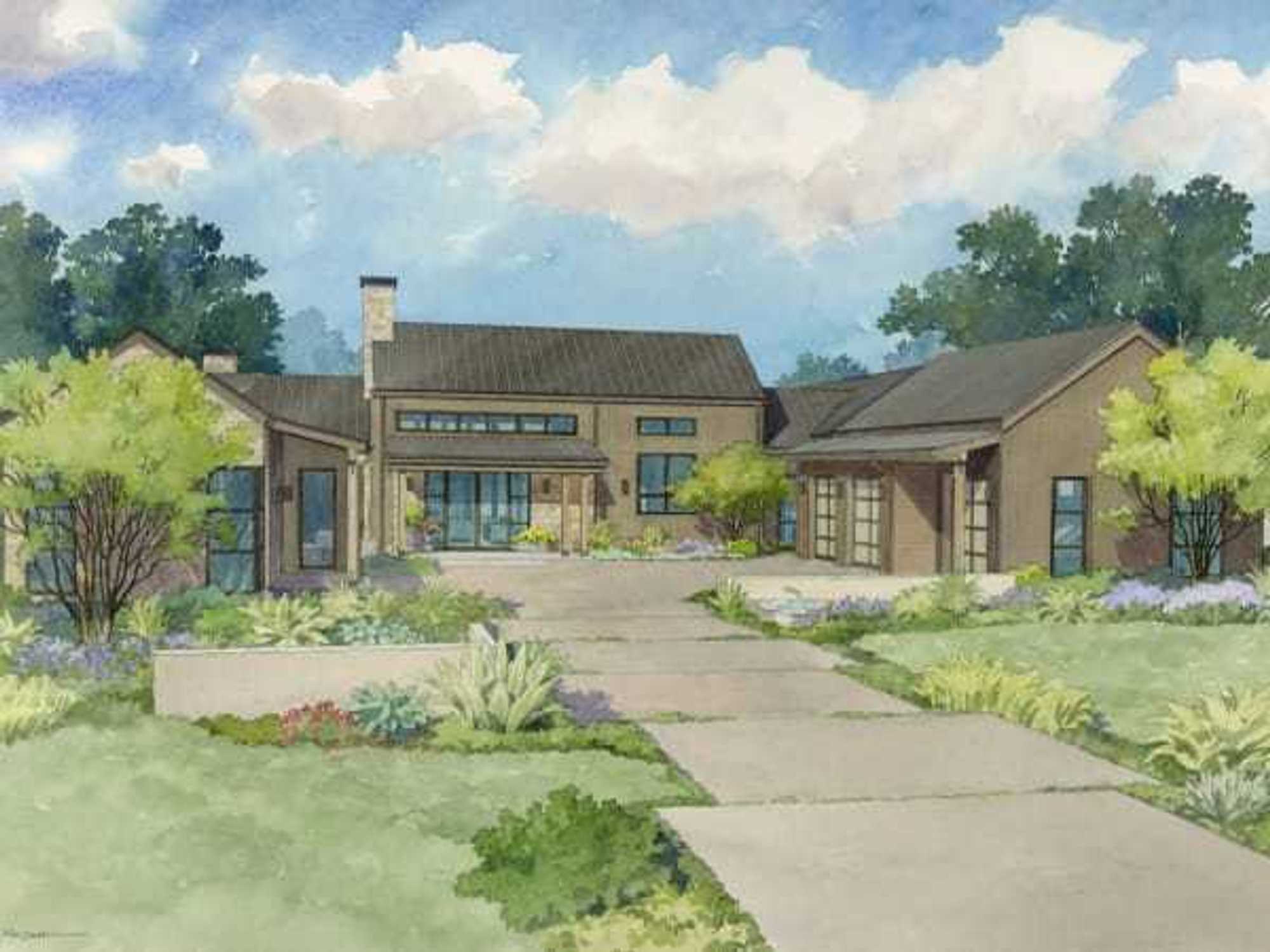Interior Innovation
Texas-based designer Kyle Bunting brings the bold with cowhide
Kyle Bunting can trace his passion for cowhide back to his childhood, when he watched his father experiment with the material. But Bunting set aside that passion to work in San Francisco for the decade following his graduation from the University of Texas.
After getting back in touch with his love of design, Kyle Bunting founded the company that bears his name in 2000, offering an array of earth-toned, textured, visceral and patterned cowhide rugs. The business — a hit with top international interior designers, homeowners and architecture firms — has now expanded to include upholstery material, furniture and wall coverings.
A business built on the idea of customization and flexibility, Kyle Bunting offers 70 colors (many of which are inspired by collaborations with designers such as Jamie Drake, Joel Mozersky, Fern Santini and Amanda Nisbet), along with 20 natural options. All products are made by hand in the Kyle Bunting studio in Austin; the hides make the trip from Italy.
We spoke with Bunting to learn more about running a global business from Texas, his fascination with cowhide and the limit of his “anything goes” philosophy.
CultureMap: So, is there anything you can’t put cowhide on?
Kyle Bunting: I encourage our team to innovate while embracing the obvious. We love to push the envelope when it comes to this material and always encourage custom commissions.
CM: You mean custom anything — size, shape, color, design?
KB: I like to champion the moderated “Yes!” more than the curated “No!” With our clientele, there are inevitable extremes. Fortunately, there have been more things we’re glad we embraced than those we turned down or wish we hadn’t.
CM: What’s the most amazing thing you’ve ever seen covered in cowhide?
KB: A client contacted our office and requested that I schedule a visit to their project in California. When I arrived, the owner stated so elegantly: “Kyle, it has to be special!” I examined the space and proposed three large murals for the anchoring rooms of the estate.
At the time, going vertical was a different format for us — and while technically challenging, it turned out to be some of the most visually arresting work we’ve ever done. I’m most proud of this project in that it spoke to several critical tenants of our work: client engagement, technical expertise and beauty through design. It was a watershed project for me.
CM: Your company is known for innovation. How much does making mistakes have to do with the process?
KB: We dream within the restraints of the material. Anything is possible but there are, of course, functional barriers. Regardless, we’re not likely to create something we feel will be unmarketable. I’d rather define the function than exploit through pattern and color.
CM: You collaborate with a lot of designers and other creative folks.
KB: In my career I’ve been blessed to meet some extraordinary people. Many of those have forged careers whose body or work awes and astounds. For them, I always ask that they indulge me with one piece of advice.
Several years ago, I visited Chicago and spent the day with Maya Romanoff. Maya, who is as charming as he is accomplished, offered me this most valuable and simple lesson. He said, “Kyle, whatever you do, it has to be beautiful.”
I think all designers should heed that advice. I hope our clients feel we have. I know Maya does.
CM: How does being based in Texas affect running a global company?
KB: I’ve done business in a lot of places outside Texas, and they all seem to make things far more complicated than they should be. Texas offers entrepreneurs an incredible opportunity. No place is freer and, critically, tax and regulatory policy is stable. Operating costs are low, and we can access both coasts by air quickly. Our centrality is often overlooked.
We work in Austin. Our local labor force is talented, creative and highly educated. Plus the cultural benefits, which people from all over can relate to, are significant.
CM: You have achieved a huge level of success. What do you attribute to that?
KB: The creative business is just as much about the art as it is about the relationship. I’d like to think we’ve been prolific at both. That connection and an immersed experience is the most important ingredient for successful design.
What we do is unique, and I assume that garners us more attention than most. But there’s an inherent elegance to allowing materials to perform their function. That hide is tactile makes the process eloquent and straightforward.
CM: We appreciate that you’ve been loyal to one material — and continue to take that material to its very limits.
KB: I say do one thing and do it well. For me it’s hide.
CM: Does cowhide cover every item in your own home?
KB: We have a rug, a few upholstered items and a monogram pillow. Long ago, [my wife] Libby and I agreed not to indulge too much in our own work. We do something pretty unique that has its place. Once you use it everywhere it ceases to be special.
Luxury is like that. It should be an indulgence, not a provision.
CM: What’s up next for Kyle Bunting the person and Kyle Bunting the company?
KB: We’ve reached a certain level of acceptance with designers, which I appreciate. But, frankly, I really feel we’re early in the story. There are new markets to engage all with spaces to cover. Our capabilities are truly limitless.

